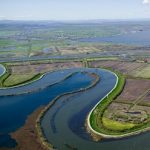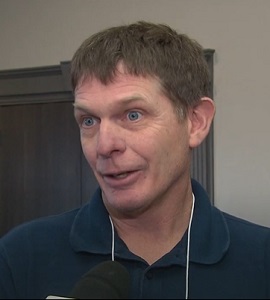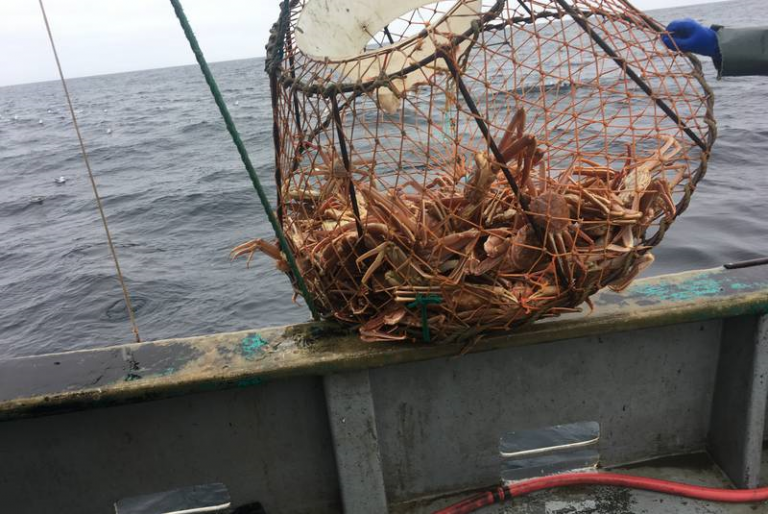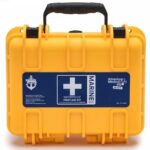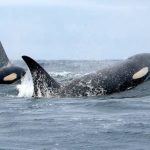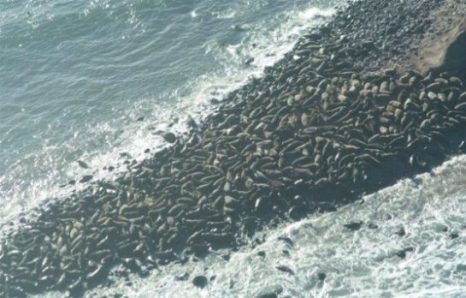Daily Archives: January 11, 2017
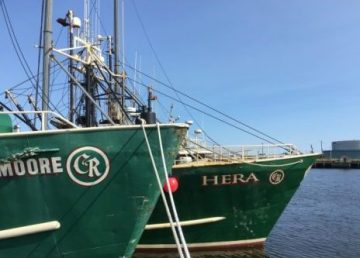
The Last Trial of the Codfather
Last night, just nine fishing boats pulled up to the dock behind the building, far fewer than the hundreds of boats lining up for the old city auction on Pier 3 in the 1980s. Back then, boats would haul in as much as 500 tonnes of cod, haddock, flounder, and other species of groundfish from the icy depths of the North Atlantic. Today’s groundfish catch is 4.3 tonnes. Most of the money keeping the port afloat is in scallops. I start to pull out a chair to take a seat when I hear a voice behind me. “I don’t think you want to do that,” says a lanky, gray-haired man reading a magazine. “The guy who normally sits in that chair will choke you to death.” “Choke you to death on cigarette smoke!” cracks a black guy with a patch on his beret that reads, “I’m Cape Verdean.” After I move to the back row, a big-bellied, bald man in a plaid shirt pushes past the No Smoking sign on the front door and walks into the room. He takes his seat and lights up a Winston cigarette. He spits out a few words about a dissatisfied fish buyer to the auction owner in raspy Portuguese. Then, he switches to English. “Tell him he can go fuck himself, the fish is fine,” he growls. “I saw every fucking one, it’s his fucking problem.” It doesn’t take me long to realize that this is Carlos Rafael, otherwise known as The Codfather, who was out of jail on a US $2-million bond. Under the table, an electronic monitoring bracelet is beaming his location to federal authorities who are making sure he gets back to his house every night by 8:30 p.m. Read this article here 21:16
On This Day, 2006: Coast Guard tows disabled Lady of Grace to port
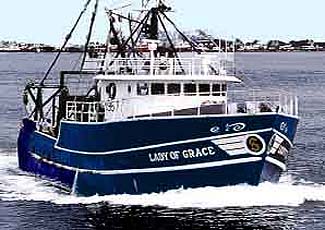 On this day in 2006 the Coast Guard towed a 76-foot fishing vessel to safety after the vessel became disabled near Nantucket early Monday morning. The Lady of Grace with four crew members on board, contacted the Coast Guard Sector Southeastern New England Command Center at 3:34 a.m. and reported they were without power and drifting approximately 10 miles east of Great Point, Nantucket. A rescue boat crew from Coast Guard Station Brant Point on Nantucket launched a 47-foot motor life boat to take the vessel in tow. Almost exactly a year later, on January 27, 2007, the Coast Guard launched a massive search for the fishing boat Lady of Grace after the 75-foot dragger failed to return as scheduled to New Bedford.1922: Weird January hurricane hits Cape, Read the rest here 16:23
On this day in 2006 the Coast Guard towed a 76-foot fishing vessel to safety after the vessel became disabled near Nantucket early Monday morning. The Lady of Grace with four crew members on board, contacted the Coast Guard Sector Southeastern New England Command Center at 3:34 a.m. and reported they were without power and drifting approximately 10 miles east of Great Point, Nantucket. A rescue boat crew from Coast Guard Station Brant Point on Nantucket launched a 47-foot motor life boat to take the vessel in tow. Almost exactly a year later, on January 27, 2007, the Coast Guard launched a massive search for the fishing boat Lady of Grace after the 75-foot dragger failed to return as scheduled to New Bedford.1922: Weird January hurricane hits Cape, Read the rest here 16:23
Always Top Quality! Your Seafreeze Ltd. Preferred Price List for January11, 2017 Has Arrived!
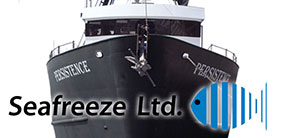 Contact our sales team today @ 401 295 2585 or 800 732 273 Click here for the complete price list from Seafreeze Ltd. – We are Direct to the Source-We are Fishermen-We are Seafreeze Ltd! Visit our website! 15:57
Contact our sales team today @ 401 295 2585 or 800 732 273 Click here for the complete price list from Seafreeze Ltd. – We are Direct to the Source-We are Fishermen-We are Seafreeze Ltd! Visit our website! 15:57
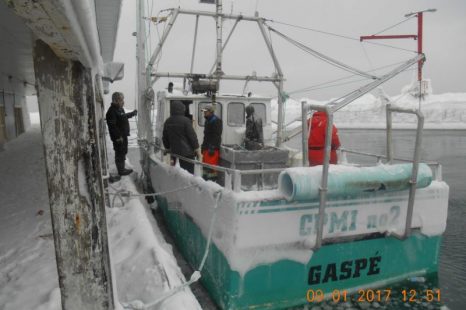
Boat docks in Green Island Cove after fright from storm
It’s not often, in January, you see a long liner tied up at the wharf in Green Island Cove. Or a search and rescue Cormorant hovering over the community in the dark with floodlights lighting the harbour and assisting a vessel into port. But that is what happened. The Crew of The vessel CPMI No2 were very happy to see the lights of Green Island Cove Sunday, Jan. 8, at around 7 p.m. The Cormorant flew very low over the wharf as a large crowd gathered, ready and eager to assist the vessel to tie up. The crew was attempting to steam their vessel from Englee around the tip of the peninsula and up the Strait of Belle Isle to Trout River. Read the story here 15:34
North Carolina: New trawl Bycatch Reduction Devices show promise
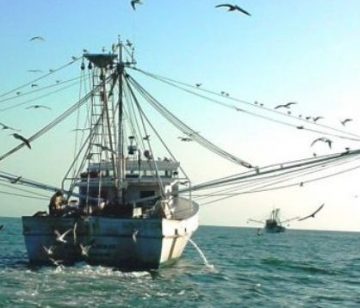 A state-initiated fishing industry workgroup is getting promising results with prototype bycatch reduction devices in shrimp trawls, and plans more tests this year. An industry work group created by the N.C. Marine Fisheries Commission met Monday at the Riverfront Convention Center to discuss ongoing testing of prototype BRDs, devices and gear configurations designed to reduce the amount of finfish and other marine life caught incidentally when fishing for a certain species, in this case shrimp. The group discussed the results of tests conducted in 2016 with four different BRDs towed by volunteer commercial shrimp harvesters, as well as set priorities for additional testing for this year. Last year was the first of a three-year research project the work group is conducting. Jerry Schill, executive director of the N.C. Fisheries Association, a nonprofit dedicated to promoting the state’s fishing industry, said the results from last year’s tests were “very positive.” “Even the (the work group members) were surprised at some of the results,” Mr. Schill said. “Ever since I started (in the fishing industry) 30 years ago, we’ve been trying to reduce bycatch in shrimp trawls.” Read the story here 15:01
A state-initiated fishing industry workgroup is getting promising results with prototype bycatch reduction devices in shrimp trawls, and plans more tests this year. An industry work group created by the N.C. Marine Fisheries Commission met Monday at the Riverfront Convention Center to discuss ongoing testing of prototype BRDs, devices and gear configurations designed to reduce the amount of finfish and other marine life caught incidentally when fishing for a certain species, in this case shrimp. The group discussed the results of tests conducted in 2016 with four different BRDs towed by volunteer commercial shrimp harvesters, as well as set priorities for additional testing for this year. Last year was the first of a three-year research project the work group is conducting. Jerry Schill, executive director of the N.C. Fisheries Association, a nonprofit dedicated to promoting the state’s fishing industry, said the results from last year’s tests were “very positive.” “Even the (the work group members) were surprised at some of the results,” Mr. Schill said. “Ever since I started (in the fishing industry) 30 years ago, we’ve been trying to reduce bycatch in shrimp trawls.” Read the story here 15:01
Zhengzhou Airport welcomes charter flight with live lobsters from North America
 Zhengzhou Xinzheng International Airport welcomed a charter flight from Halifax, Canada Airport, on the evening of January 9. The United States National Airlines charter flight was full of live lobsters from Canada. With this, Zhengzhou Xinzheng Airport imports North American seafood. The security units at the airport geared up to handle 156 one hundred tonnes of live shrimp. The customs inspection and quarantine departments were also immediately involved to check and release. It is understood that these Boston lobster are from Canada, Boston lobster, meat is more tender and detailed, the product has a variety of trace elements rich and delicious. Mainly grown in the North Atlantic Ocean near the Arctic cold sea waters, very cold water, so the growth was particularly slow, the “century lobster,” said. These exotic lobsters from Zhengzhou will be delivered directly through the air transport to the domestic Guangzhou, Fujian, Shanghai, Shandong and other provinces and cities. Link 13:52
Zhengzhou Xinzheng International Airport welcomed a charter flight from Halifax, Canada Airport, on the evening of January 9. The United States National Airlines charter flight was full of live lobsters from Canada. With this, Zhengzhou Xinzheng Airport imports North American seafood. The security units at the airport geared up to handle 156 one hundred tonnes of live shrimp. The customs inspection and quarantine departments were also immediately involved to check and release. It is understood that these Boston lobster are from Canada, Boston lobster, meat is more tender and detailed, the product has a variety of trace elements rich and delicious. Mainly grown in the North Atlantic Ocean near the Arctic cold sea waters, very cold water, so the growth was particularly slow, the “century lobster,” said. These exotic lobsters from Zhengzhou will be delivered directly through the air transport to the domestic Guangzhou, Fujian, Shanghai, Shandong and other provinces and cities. Link 13:52
From the Mayor’s Chair by Absecon Mayor John Armstrong – Keep summer flounder limits as they are
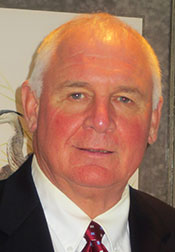 One of my New Year’s resolutions is to do everything possible to preserve jobs and to attract new ones for our local residents. As a local mayor, my direct influence over regional issues affecting our economy is necessarily limited. Nevertheless, I still have a voice and I need to raise it when I see something happening which may affect the opportunity for Absecon residents to earn a living. Statement in Opposition to Implementation of Summer Flounder Draft Addendum XXVIII – As the Mayor of the City of Absecon, Atlantic County, New Jersey, I write to voice my firm opposition to the regulations promulgated by NOAA Fisheries and the Mid-Atlantic Regional Fishery Management Council which would reduce the commercial quota and recreational harvest limits for summer flounder in 2017 and 2018. Read the rest here 13:30
One of my New Year’s resolutions is to do everything possible to preserve jobs and to attract new ones for our local residents. As a local mayor, my direct influence over regional issues affecting our economy is necessarily limited. Nevertheless, I still have a voice and I need to raise it when I see something happening which may affect the opportunity for Absecon residents to earn a living. Statement in Opposition to Implementation of Summer Flounder Draft Addendum XXVIII – As the Mayor of the City of Absecon, Atlantic County, New Jersey, I write to voice my firm opposition to the regulations promulgated by NOAA Fisheries and the Mid-Atlantic Regional Fishery Management Council which would reduce the commercial quota and recreational harvest limits for summer flounder in 2017 and 2018. Read the rest here 13:30
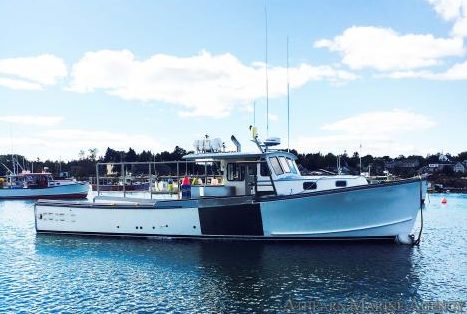
Athearn Marine Agency Boat of the Week: 45′ MDI Lobster boat, CAT 3406C, Price Reduced!
Specifications, information and 4 photo’s click here To see all the boats in this series, Click here 13:05
FISH-NL hires lawyer David Goodland
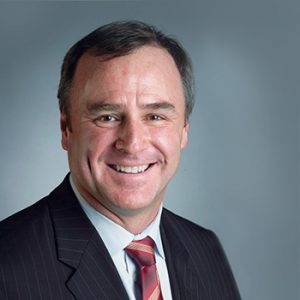 The Federation of Independent Sea Harvesters of Newfoundland and Labrador (FISH-NL) has hired well-known St. John’s lawyer David Goodland to represent the organization’s certification application currently before the Labour Relations Board. “David’s one of the best labour lawyers in the province and we couldn’t be more pleased to have him aboard,” says Ryan Cleary, President of FISH-NL. “He has a proven track record, most recently having successfully represented scallop fishermen in the Strait of Belle Isle in their case against the FFAW.” Last March, the Supreme Court of Newfoundland and Labrador ruled in favour of 76 scallop fishermen who took the FFAW to court over a compensation fund for lost fishing grounds. Nalcor agreed in 2014 to pay out $2.6 million to keep fishermen away from an undersea cable needed to bring Muskrat Falls power to the island. The fishermen argued the money should be shared through lump sum payments among everyone who held scallop licence. FISH-NL presented an application to the Labour Relations Board on Dec. 30th requesting that it be certified to represent the province’s inshore fish harvesters, breaking them away from the FFAW. The application was released to the FFAW on Monday, giving the union and fish processors 10 calendar days to respond. In turn, FISH-NL will have 5 calendar days to respond to those responses. The Labour Relations Board will then conduct an investigation of the application and the membership cards, a process that could take “weeks or months.” Once that investigation is complete and a report is issued, FISH-NL will have 2 days to respond before the final report is released. 10:49
The Federation of Independent Sea Harvesters of Newfoundland and Labrador (FISH-NL) has hired well-known St. John’s lawyer David Goodland to represent the organization’s certification application currently before the Labour Relations Board. “David’s one of the best labour lawyers in the province and we couldn’t be more pleased to have him aboard,” says Ryan Cleary, President of FISH-NL. “He has a proven track record, most recently having successfully represented scallop fishermen in the Strait of Belle Isle in their case against the FFAW.” Last March, the Supreme Court of Newfoundland and Labrador ruled in favour of 76 scallop fishermen who took the FFAW to court over a compensation fund for lost fishing grounds. Nalcor agreed in 2014 to pay out $2.6 million to keep fishermen away from an undersea cable needed to bring Muskrat Falls power to the island. The fishermen argued the money should be shared through lump sum payments among everyone who held scallop licence. FISH-NL presented an application to the Labour Relations Board on Dec. 30th requesting that it be certified to represent the province’s inshore fish harvesters, breaking them away from the FFAW. The application was released to the FFAW on Monday, giving the union and fish processors 10 calendar days to respond. In turn, FISH-NL will have 5 calendar days to respond to those responses. The Labour Relations Board will then conduct an investigation of the application and the membership cards, a process that could take “weeks or months.” Once that investigation is complete and a report is issued, FISH-NL will have 2 days to respond before the final report is released. 10:49
Gloucester fisherman chosen for Gulf of Maine northern shrimp research project
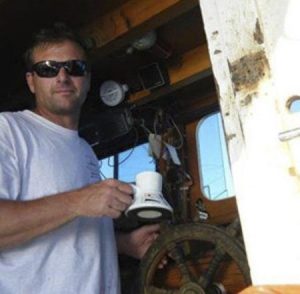 Joe Jurek is no stranger to the Gulf of Maine northern shrimp fishery, having incorporated shrimping into his annual fishing calendar even after moving to Gloucester about a decade ago to groundfish. “When sectors started in 2009, we would catch our groundfish quota as quickly as we could and then go fish the other fisheries, including the northern shrimp fishery,” Jurek said Tuesday. “I shrimped long before that, though. You could say it’s kind of my background.” Jurek, owner and skipper of the 42-foot F/V Mystique Lady, will be the lone Massachusetts representative in the upcoming Gulf of Maine winter shrimp sampling program that will produce the only legal shrimping in 2017 in the Gulf of Maine. The Mystique Lady is one of 10 trawlers participating in the sampling program, along with eight from Maine and one from New Hampshire captained by Mike Anderson of Rye. Read the story here 09:56
Joe Jurek is no stranger to the Gulf of Maine northern shrimp fishery, having incorporated shrimping into his annual fishing calendar even after moving to Gloucester about a decade ago to groundfish. “When sectors started in 2009, we would catch our groundfish quota as quickly as we could and then go fish the other fisheries, including the northern shrimp fishery,” Jurek said Tuesday. “I shrimped long before that, though. You could say it’s kind of my background.” Jurek, owner and skipper of the 42-foot F/V Mystique Lady, will be the lone Massachusetts representative in the upcoming Gulf of Maine winter shrimp sampling program that will produce the only legal shrimping in 2017 in the Gulf of Maine. The Mystique Lady is one of 10 trawlers participating in the sampling program, along with eight from Maine and one from New Hampshire captained by Mike Anderson of Rye. Read the story here 09:56
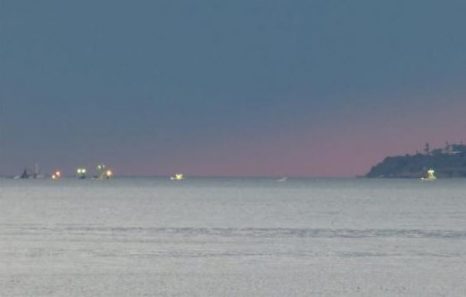
Squid boats dot Malibu coast – Roughly 40,157 tons of squid landed this season
Almost every night this winter, bright lights have appeared off the coast of Malibu. It’s an eerie sight on a foggy evening, suggesting something unearthly or supernatural, but the only thing these ghostly lights portend is the presence of Doryteuthis opalescens, the common market squid. It’s a good omen for California’s seafood industry. Market squid is one of California’s largest commercial fisheries, and tons of frozen California calamari are shipped all over the world each year. However, the species had almost entirely disappeared from Southern California waters last year. The absence of squid is being blamed on El Niño. California Department of Fish and Wildlife environmental scientist Laura Ryley studies squid. While concerns are being raised over the potential impact of prolonged ocean warming on the species, the return of more normal temperature conditions in the Pacific this winter appears to have signaled the return of the squid. Read the story here 09:22
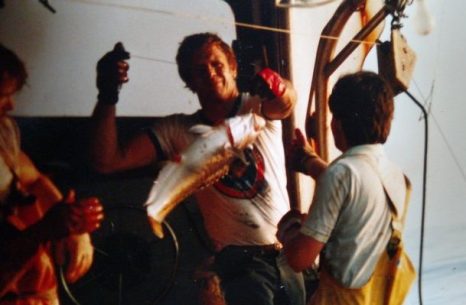
Commercial Fishing Pioneer And Poet David Krusa Dies At 75
Montauk resident David Krusa, a commercial fisherman and one of the pioneers of the local tilefish fishery, died this past week. He was 75. Mr. Krusa and his longtime fishing partner, John Nolan, were the first captains in Montauk and among the first on the East Coast to exclusively target tilefish, a golden-skinned species that inhabits the ocean bottom near the edge of the continental shelf and now supports a multimillion-dollar industry. After a battle with lymphoma in the 1990s forced him to give up his career on the water, Mr. Krusa turned to woodworking and writing poetry and short stories to exercise his boundless mental and physical energy. His works were featured frequently in the East Hampton Star and also in the anthology “On Montauk.” Mr. Krusa died of heart failure on January 4, his family said. In addition to his wife, Mr. Krusa is survived by two sons, Kip, of Tennessee, and Lee, of California, a daughter, Margaret McKinnon, of Texas, and a brother, Christopher, of Illinois.Read the story here 08:36
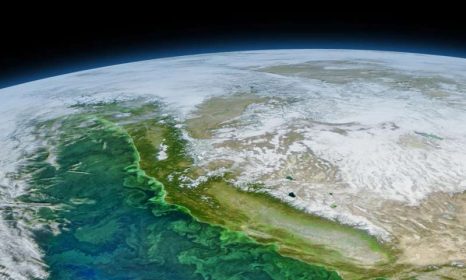
El Nino, Pacific Decadal Oscillation implicated in domoic acid shellfish toxicity
Using a combination of time-series data spanning two decades, the scientists not only showed a clear link between domoic acid and these larger climatic phenomena, but also developed a new model to predict with some accuracy the timing of domoic acid risks in the Pacific Northwest. The model is based on interpreting the status of the “Oceanic Niño Index” and the Pacific Decadal Oscillation – both of which are measures of climate, ocean water movement, currents and temperature. It’s designed to help coastal resource managers more effectively monitor this issue and protect public health. The findings were made by researchers from Oregon State University, the University of Oregon, the National Oceanic and Atmospheric Association (NOAA), and the Oregon Department of Fish and Wildlife. The work was primarily supported by NOAA. Read the article here 08:01

































